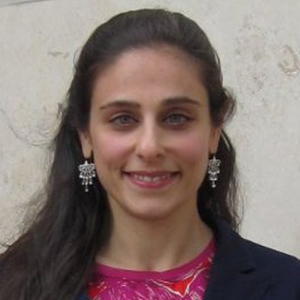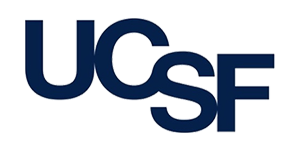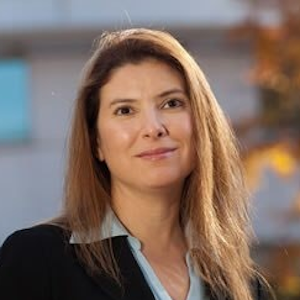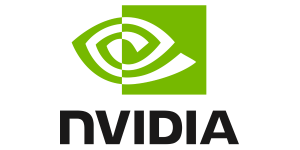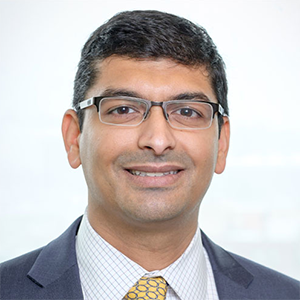Machine learning is revolutionizing the potential of imaging for precision medicine. To realize that potential, we need not only expand rigorous ML research, but also solve several big-picture challenges in this emerging field. This panel will feature experts from research and industry to briefly highlight several use cases and then discuss bigger challenges such as data security and sharing, models for federated development of machine learning solutions, and the need for shared platforms and tools.
Session Chair Profile
Biography
Dr. Rima Arnaout is Assistant Professor of Medicine, member of the Bakar Computational Health Sciences Institute, and faculty in the graduate program in Biological and Medical Informatics at the University of California, San Francisco. She is a physician-scientist with a strong background in genetics, clinical research and programming, and a practicing cardiologist board-certified in multi-modality cardiovascular imaging. Dr. Arnaout is currently developing computational methods to bring precision phenotyping to cardiovascular imaging for both research and clinical use. Dr. Arnaout is the recipient of the Sarnoff Cardiovascular Research Foundation Fellow and Scholar awards. She completed her undergraduate degree at the Massachusetts Institute of Technology, her MD at Harvard Medical School, her internal medicine residency at Massachusetts General Hospital, and her cardiology fellowship and imaging training at the University of California, San Francisco.
Speaker Profile
Biography
Dr. Mona Flores, is a board-certified Cardiac Surgeon with an MD from Oregon Health and Sciences University. After a General Surgery Residency at the University of California in San Diego, a Research Fellowship at Stanford, a Cardiothoracic Residency and a Left Ventricular Assist Device Super Fellowship at Columbia University in NY, she began her surgical career in private practice before transitioning into Academic Surgery. Mona’s varied background includes an MBA from SUNY Albany in NY, and a three- year stint as a Financial Analyst for Smith Barney in NY. Immediately prior to joining NVIDIA to head up the Healthcare Start-up Practice, she was the founding Chief Medical Officer of Human Resolution Technologies, a digital health startup focusing on improving outcomes following surgery. Mona was recently promoted to lead Clinical Partnerships Globally at NVIDIA and is a strong believer in AI’s transformative power in medicine.
Speaker Profile
Biography
Bimba Rao has over 20 years of experience in R&D and product development in healthcare and the medical device industry. She currently heads the global Artificial Intelligence engineering team at Siemens Healthineers Ultrasound. She is focused on applying the latest innovations in AI to imaging system reliability, usability and automation. Bimba has led teams in successfully delivering signal processing and image processing algorithms for image guidance of surgical procedures. She has a PhD from Duke University in electrical engineering.
Speaker Profile
Biography
At Innovation Ventures, whose mission is to commercialize UCSF’s medical discoveries, Dr. Lesh focuses on high-value digital health and medical device opportunities, mentors faculty-entrepreneurs and start-ups, and has ultimate responsibility for Catalyst, UCSF’s translational accelerator. Dr. Lesh earned undergraduate and graduate degrees in computer science and biomedical engineering from MIT before attending medical school at UCSF. He was chief of cardiac electrophysiology at UCSF, and subsequently founded and was CEO of a number of successful medtech ventures. He pioneered several procedures for treating cardiac arrhythmias, and is the author of over 300 scientific papers, book chapters and books. Dr. Lesh holds over 200 patents, including the foundational method for pulmonary vein isolation (PVI) for atrial fibrillation, left atrial appendage occlusion (LAAO) to prevent stroke, and catheter-based treatment of mitral valve disease.
Speaker Profile
Biography
Prior to joining Amazon, Dr. Maulik Majmudar was Associate Director of the Healthcare Transformation Lab at Massachusetts General Hospital, and an Assistant Professor at Harvard Medical School, where he was responsible for the identification, validation, and implementation of digital health solutions to improve care delivery as well as the patient and provider experience. Dr. Majmudar was also a founding member and chief clinical officer of Quanttus, Inc. a venture-backed medical wearables startup that was developing a novel wrist-based device for continuous cuffless blood pressure monitoring. Dr. Majmudar attended Northwestern University Feinberg School of Medicine and then completed residency training in Internal Medicine at The Johns Hopkins Hospital, followed by a cardiovascular medicine fellowship at the Brigham and Women’s Hospital. He also holds two patents and has had several publications in high-impact journals, such as Nature, Circulation, and JAMA.







